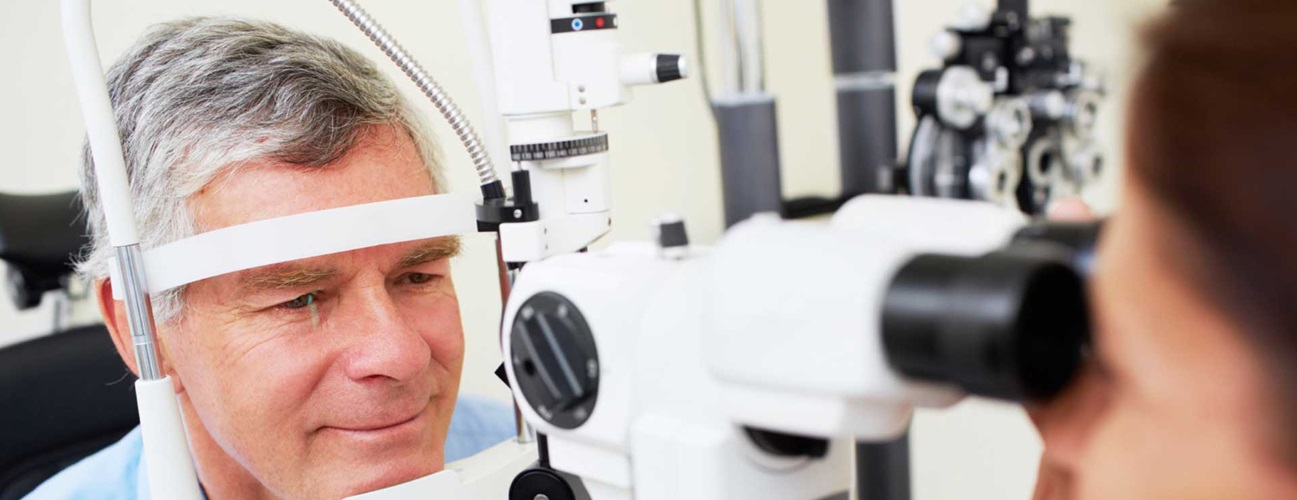Best Way to Age-Proof Your Vision
Featured Expert
The effects of aging are hardly limited to wrinkles, creaky knees and gray hair. Just consider the plethora of age-related conditions that can affect your eyes, including cataracts, and glaucoma. What you need to know: Although they are certainly more common in people 50 and older, their appearance is not inevitable.
Similar to the rest of our body, our eyes become increasingly susceptible to various problems as we age. Some of these problems are influenced by poor overall health, which we can help prevent with smart lifestyle choices. So even if age is against us, there are daily decisions we can make that help decrease the likelihood of developing these conditions.
That’s why optometrist Laura Di Meglio recommends that everyone have a comprehensive eye exam every two to three years starting in childhood to check eye health even if they have no visible vision problems. When people turn 40, Di Meglio recommends eye exams every one to two years, depending on the patient’s needs and overall health. The results will serve as a benchmark to track any changes in the coming years.
Protecting Your Aging Eyes
There is no doubt that genetics can play a role in developing glaucoma or macular degeneration, but making smart health decisions can help prevent or lessen the chance of developing these age-related eye problems.
Stop smoking.
Current and former smokers have up to four times the risk of developing AMD — the leading cause of blindness in the U.S. — than those who never smoked. The risk remains high even up to 20 years after quitting. In fact, an Australian study estimated that as many as 1 in 5 cases of AMD-related blindness in that country could be related to smoking. Researchers say there are several reasons for the increased risk in smokers, including cellular changes, oxidative stress and vascular constriction.
Maintain a healthy weight.
Being overweight affects far more than your heart, blood pressure and blood sugar; it can also affect your vision. Most studies find that overweight and obese people are far more likely to develop cataracts than those who weigh less. Type 2 diabetes, which often occurs in overweight and obese people, can accelerate the speed of cataract formation. Unfortunately, losing the extra weight once you’ve gained doesn’t seem to prevent cataracts.
Studies also suggest that obesity increases the risk of glaucoma, likely by increasing the buildup of fluid inside the eye as well as from the effects of high blood pressure, diabetes, high cholesterol and insulin resistance. Obesity also increases the risk of AMD, possibly by increasing inflammation and oxidative stress in the eyes. Diabetes, high blood pressure and high cholesterol increase your risk of damaging blood vessels in the retina and can lead to permanent vision loss. Further studies are needed to see if losing weight can improve these conditions.
Slip on the shades.
Even though everyone develops cataracts as they age, people with fair skin and blue eyes have a much higher risk of developing them earlier, compared with people with darker skin and eyes. Indeed, a 1998 Johns Hopkins study was among the first to link sun exposure to an increased risk of cataracts. Exposure to ultraviolet (UV) light also increases the risk of AMD. The structures in the eye — the lens and the retina — absorb UV from natural sunlight, which is thought to damage the cells and change their metabolism. Therefore, wearing UV protection will decrease the amount of potential damage these cells experience and, as a result, help prevent early cataracts and AMD from developing.
Just make sure your sunglasses protect against UVA and UVB wavelengths or are marked with UV 400, and that they wrap around your face. A Johns Hopkins study found that up to 20% of the sun’s rays can “leak” through the sides of typical glasses.
Enjoy regular activity.
Add this to the list of benefits of exercise: A long-term study of more than 15,000 people found that people who were physically active and drank occasionally experienced less vision loss over 20 years than those who didn’t exercise or drink at all. Remember: Moderate drinking is no more than two drinks a day for men; one for women. And always check with your doctor — who knows your health status best — to make sure alcohol is appropriate for you.
Make eye exams a habit — even if you have great vision.
Di Meglio recommends that even those with excellent vision make a point of visiting an eye care provider every two to three years before age 40 for comprehensive exams to catch signs or minor symptoms of eye conditions before they become severe. Early detection allows you and your eye care provider to start treatments early and make lifestyle changes that can prevent symptoms of many conditions from worsening.







